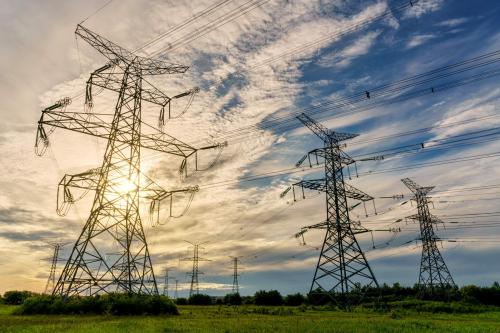Kenya’s mobile phone bond sells out in 13 days
On March 23, Kenya became the first country to issue government bonds exclusively via mobile phones, without users needing access to bank accounts. The three-year bond, named M-Akiba (after the word for savings in Swahili, “Akiba”), sold for as little as $30 and pays an estimated tax-free interest of 10 percent. During the launch, Finance Minister Henry Rotich stated that the aim of the sale is to increase public participation in capital markets while simultaneously improving the country’s savings rate.
On Wednesday, 13 days after the bond’s debut, it fully sold out, raising $1.45 million. According to Rotich, 5,000 people invested in the bond, with purchases ranging from $30 to $9,671, with an average investment of $193. Before the launch of the bond, the smallest amount a private citizen could invest in government treasuries was $484 dollars. This process would require a bank account and a visit to the central bank’s branches in order to complete the purchase. This bond, however, was mainly sold on the M-Pesa platform, a mobile money system allowing users to send, receive, and save money via their mobile phones.
The offer was originally open for 3 weeks but sold out ahead of schedule. This initial offer of $150 million shillings is the first part of the bond and will be followed by a larger offering of $464.2 million shillings in June. The funds will be directed toward financing Kenya’s development program.
Regional hydroelectric power opportunities advance
On Wednesday, leaders from Sudan and Ethiopia announced that Sudan will receive electricity from the Grand Ethiopian Renaissance Dam, which is located on the Blue Nile River. The two presidents stated that the line is intended to forge greater political, economic, and social relations, also mentioning future plans for a railway and a free economic zone. The dam itself is predicted to triple Ethiopia’s current power generation, producing 6,000 megawatts of power and placing it among the 10 biggest hydropower plants in the world. Now, a 500-kilovolt transmission line is planned to connect the dam to Khartoum.
Hydroelectric power across the continent is expanding: On March 30, Tanzania, Rwanda, and Burundi held a ground-breaking ceremony for the Rusumo Falls hydroelectric project, which is located on the Kagera River. Upon completion in 2020, each country is expected to benefit from 80 megawatts of renewable energy each, supplying 7,000 households and creating over 500 jobs. The plant, which costs $340 million, is funded by the World Bank and constructed by Chinese firms CGCOC Group and JWHC JV for civil works, as well as ANDRITZ Hydro from Germany/India for electro-mechanical works. The African Development Bank is funding the construction of transmissions lines, estimated at $121 million.
S&P downgrades South Africa’s credit rating to junk status after cabinet reshuffle
Following the sacking of Finance Minister Pravin Gordhan last week, credit ratings agency Standard and Poor’s (S&P) downgraded South Africa’s sovereign debt from BBB- to BB+ (or “junk” status) on Monday, April 3 due to concerns that the country’s political tensions will further destabilize the economy and prevent much needed fiscal and structural reforms. S&P also cited growing government debt, the cost of supporting Eskom (the state power firm), and potential breakdowns in trust between business and labor leaders as contributing factors to the downgrade.
The downgrade will likely make borrowing on the international markets costlier for South Africa since investors will view its debt as a risky investment. Another ratings agency, Moody’s, stated on Monday that it would also review South Africa for a possible downgrade. If Moody’s or Fitch, the third major credit ratings agency, follows S&P and decides to downgrade South Africa’s government debt, many international investors would be compelled to sell their South African sovereign debt due to their own rules that require at least two of the three ratings agencies to appraise the debt to be investment grade.
Markets reacted to S&P’s decision by extending the losses from last week: The rand lost the 10 percent it had appreciated against the dollar since January, bank stocks lost a tenth of their value, and the benchmark 10-year bond yield rose to its highest level since November 2016—at 9.22 percent. Meanwhile, calls for President Jacob Zuma’s resignation grew louder. Cosatu, for example, the country’s biggest union and typically an African National Congress party ally, stated on Tuesday, “The time has arrived for him to step down and allow the country to be led forward by a new collective at a government level. We no longer believe in his leadership abilities.”




Commentary
Africa in the news: Kenya’s debut mobile bond, regional hydropower plans, and South Africa’s credit rating drop
April 7, 2017